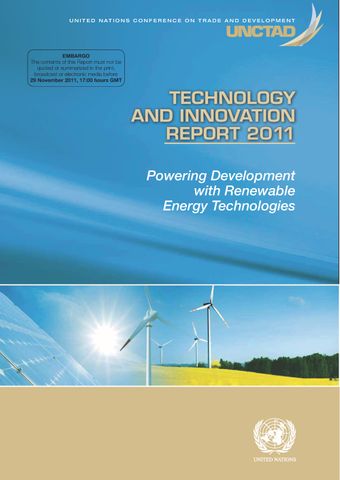Conclusion

- Author: United Nations Conference on Trade and Development
- Main Title: Technology and Innovation Report 2011 , pp 149-151
- Publication Date: February 2012
- DOI: https://doi.org/10.18356/9ab9d125-en
- Language: English
- Previous Chapter
- Table of Contents
- Next Chapter
Energy poverty remains the key issue in the interface of climate change and development. As highlighted in this TIR, RETs offera distinct possibility of tackling the dual challenge of climate change and energy poverty. Established RETs offer an importantmeans not only of reducing energy poverty, but also of complementing national strategies for climate change mitigation. All countries have the potential to transition to an energy sector that contains suitable mixes of conventional and renewable energy sources in order to alleviate energy poverty, and to reposition their economies on greener catch up trajectories. However, the challenge for developing countries and LDCs is to build their technological capabilities and domestic markets so that they can promote the use, large-scale adaptation, production and innovation of RETs for development of manufacturing and ther sectors of the economy. The ensuing added benefits in terms of job creation and export potential will lend the much-needed impetus to their economic development.
-
From This Site
/content/books/9789210551571c012dcterms_title,dcterms_subject,pub_keyword-contentType:Journal -contentType:Contributor -contentType:Concept -contentType:Institution105


